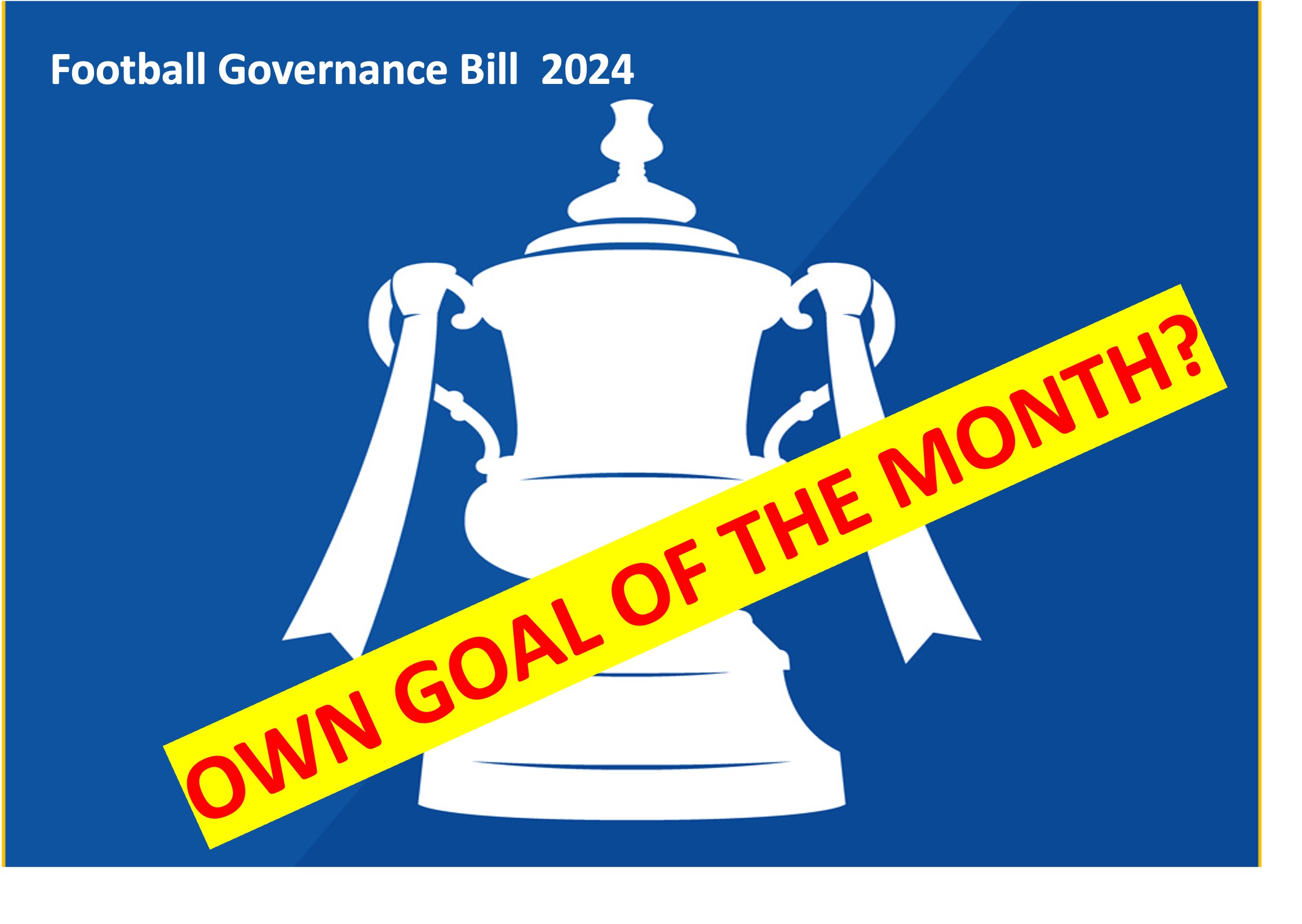This is Blog no 66
With just six days to go before Parliament starts considering the Football Governance Bill, the FA and the Premier League may have scored a spectacular own-goal in front of their home crowd.
They have announced a significant change to the iconic FA Cup competition, eliminating replays in the early rounds and thereby denying the fans of smaller clubs the dream occasions and lucrative revenues of matching the bigger clubs and forcing a replay.

There may be excellent reasons for the decision, but this is not the point. What matters is that this is precisely the kind of issue that prompted the Government to legislate.
A few years ago, it was the prospect of a European super-league. More recently football fans have complained about the loss of club heritage. According to the Football Supporters’ Association, in the last 25 years, more than 60 clubs have lost ownership of their stadium, training ground or other property. A succession of stories led to a political consensus that the beautiful game should be regulated. Even the football industry accepted the inevitable.
But as we all know, the devil is in the detail, and in my provocative Blog last week, https://tinyurl.com/ysd5apzjI argued that the Bill that goes to Second Reading in the Commons next Tuesday may be flawed. In my view, it confuses ‘fan engagement’ with ‘fan consultation’, and I speculated that maybe clubs are not fully aware of the rigorous demands of holding a formal consultation.
Note the reaction to the end-of-replays announcement. Smaller clubs – and even bigger ones - are queuing up to complain they weren’t ‘consulted’ and it seems extraordinary that the clubs went ahead with this knowing it would make it impossible for MPs to water down the burden of fan consultation in the Bill.
Much will depend upon the way in which the proposed Independent Football Regulator handles the brief. Tinkering with as venerable an institution as the FA Cup is bound to increase demand for a tighter rather than a looser regime. Supporters will insist on holding their clubs and football administers to account. Expectations will rise. Fans will not be content with a tokenistic, going-through-the-motions consultation. They will want the real deal – fully compliant with best practice, and enforceable in the High Court.
They will also want visible measurement. Kevin Rye’ Fan engagement index already provides a great source of insight, but we will surely need to enhance it with ways of demonstrating when and how clubs consult their fans and their communities. What was the subject-matter? Who responded? What did they say? To what extent did decisions reflect consultee views?. Was the exercise independently quality assured?
This is well beyond the cosier model mentioned in some of the documentation. The Bill’s Explanatory notessays that “Clubs should have due regard to the views expressed by the representative group of fans but will not, however, be bound by the views of fans.” That sounds mild and reasonably non-threatening to clubs, but I predict that a much more demanding process will emerge – and needing to satisfy more stringent standards.
As Parliament starts to consider the Bill, it must remember that this amount of interference with a major sport is unprecedented, and its actions will shape the nature of football for years to come. Mistakes made in the coming weeks can have unintended consequences. One of them might be to arouse ambitious expectations and then fail to deliver them, aggravating the divide between clubs and their supporters.
That would be a shame. We need clear heads, and wise counsel. Announcements of changes affecting millions of fans – and without any visible consultation, just adds to the potential disenchantment, and the game that so many people adore will pay the penalty! (sorry)
Leave a Comment
I hope you enjoyed this post. If you would like to, please leave a comment below.